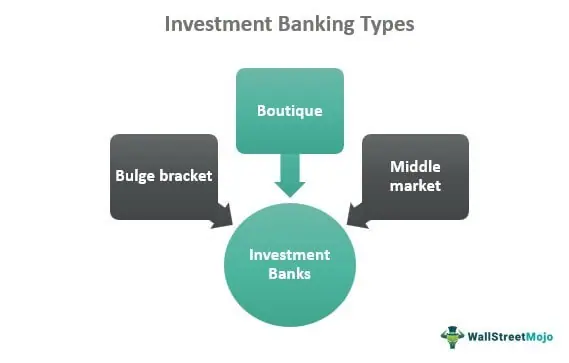Investment banking: how it works and its career opportunities
Published

Investment banking, in its modern form, has existed since the late 19th century. The founding of Drexel Morgan & Co. by J.P. Morgan in 1871 is considered an important milestone in the history of investment banking. In the years that followed, investment banks developed into important players in global financial markets.
However, there were similar activities in earlier times that can be viewed as precursors to modern investment banking. As early as the 17th century, for example, there were private bankers in Europe who granted loans to governments and companies and also issued securities. Another example is the business of the Rothschild family in the 18th and 19th centuries, who acted as financiers of states and companies and also issued bonds and stocks.
What is investment banking and how does it work?
Investment banking is a branch of banking that specializes in advising companies, governments and institutional investors in raising capital and executing financial transactions.
Investment banks offer a variety of services including:
- Raising Capital: Investment banks help companies, governments, and other organizations raise capital by issuing securities such as stocks and bonds. They also assist in structuring transactions and setting prices.
- Mergers & Acquisitions: Investment banks advise companies on mergers and acquisitions by analyzing the financial viability of the transactions and crafting the best deal for their clients.
- Asset management: Investment banks manage assets for institutional investors such as pension funds, endowments and hedge funds.
- Trading and Sales: Investment banks trade securities such as stocks, bonds and derivatives and offer their customers the opportunity to buy and sell these securities.
How investment banking works is complex and involves many different steps depending on the type of service being offered. Investment banks typically work closely with their clients to understand their needs and offer tailored solutions. The investment banking business typically requires close collaboration between different departments within the bank, such as investment banking, trading, research and asset management.
What career opportunities are there in investment banking and what skills do you need?
There are a variety of career opportunities in investment banking, from entry-level positions to senior positions. Some of the most common investment banking career paths include:
- Analyst: As an analyst, you are typically an entry-level employee in the investment banking department and work on creating financial models and presentations as well as conducting due diligence research.
- Associate: Associates typically have several years of experience in investment banking and work closely with clients to complete financial transactions. They also work on creating presentations and financial models.
- Vice President: Vice presidents typically have five to ten years of investment banking experience and are responsible for executing transactions, serving clients, and supervising analysts and associates.
- Managing Director: Managing directors are typically the highest level in investment banking and are responsible for the strategic direction of the department as well as acquiring clients and executing large financial transactions.
To be successful in investment banking, you need a combination of analytical, interpersonal and organizational skills. Some of the key skills needed in investment banking are:
- Financial Analysis: A good knowledge of financial models, balance sheets, and profit and loss statements is essential to succeed in investment banking.
- Communication: Good interpersonal skills are important for convincing customers and colleagues and explaining complex financial concepts.
- Project management: In investment banking, it is important to manage several projects at the same time and meet deadlines. Therefore, good organizational skills are an advantage.
- Teamwork Skills: Investment banking is a team business, and the ability to work effectively with others is critical to success.
How is investment banking different from other areas of banking?

Those : dummies.com
Investment banking differs from other areas of banking in several key ways, particularly when compared to traditional retail banking or commercial banking. Here are some of the key differences:
- Focus on large customers: In investment banking, banks focus primarily on the needs of large companies, governments and institutional investors. In contrast, retail and commercial banks focus on the needs of private customers and small to medium-sized businesses.
- Service offering: Investment banks typically offer specialized services such as mergers and acquisitions advisory, capital raising and trading in financial instruments, while retail and commercial banks offer more standardized banking products such as checking accounts, loans and mortgages.
- Risk Profile: Investment banks are typically riskier than other areas of banking because they typically work with larger sums of money and trade complex financial instruments. This can bring higher returns but also involve higher risks.
- How we work: Investment banks often work in fast-paced environments where quick decisions and deadlines are important. In contrast, retail and commercial banks typically operate in a slower, more conservative environment.
Overall, investment banking differs significantly from other areas of banking due to its specialized services, focus on large clients and higher risk profile.
What are the key roles and responsibilities of investment bankers?
The duties and responsibilities of investment bankers depend on the position, but generally they include:
- Client Care: Investment bankers work closely with clients to understand their needs and provide tailored solutions. This includes advisory services such as mergers & acquisitions, raising capital or structuring financial instruments.
- Financial analysis: Investment bankers create financial models to analyze the value of companies and financial instruments and identify potential risks.
- Transaction Execution: Investment bankers are responsible for executing transactions such as mergers and acquisitions, equity offerings, or debt offerings. This includes conducting due diligence, preparing prospectuses and conducting negotiations.
- Marketing: Investment bankers are also responsible for attracting new clients and maintaining existing relationships by actively marketing their services.
- Leadership: Investment banking executives also have an important role in developing and implementing business strategies, leading teams, and monitoring financial performance.
Investment bankers require a variety of skills to be successful in their work. These include strong analytical skills, leadership skills, negotiation skills, communication skills, a good understanding of financial markets and a quick comprehension. They must also be able to work under pressure and meet deadlines, as investment banking is typically a fast-paced and demanding work environment.
What different departments are there in an investment bank and what are their roles?
In an investment bank, there are several departments, each performing different functions. Here are some of the key departments and their roles:
- Corporate Finance: This department is responsible for advising clients on mergers & acquisitions, capital raising and the structuring of financial instruments.
- Sales & Trading: This department is responsible for trading stocks, bonds, currencies, commodities and other financial instruments. The sales teams approach potential buyers while the trading teams fulfill the orders.
- Research: This department produces financial analyzes that help customers make decisions. The research team analyzes company data, economic indicators and market trends to create forecasts and recommendations.
- Risk Management: This department is responsible for monitoring and managing risks in the bank. The department identifies potential risks and creates strategies to minimize them.
- Compliance: This department ensures that the bank meets all regulatory requirements and adheres to laws and regulations.
- Operations: This department is responsible for processing transactions and managing data and technology in the bank.
- Human Resources: This department is responsible for hiring, training and managing employees in the bank.
- Information Technology: This department is responsible for developing and maintaining the bank's IT infrastructure and systems.
- Marketing: This department is responsible for marketing the bank's services and maintaining customer relationships.
Each department has its own tasks and roles, but they all work together to support the bank's business.
How important is networking in investment banking and how can you build a successful network?

Those : poetsandquants.com
Networking is very important in investment banking as it is an industry that relies heavily on relationships and contacts. A successful network can help attract new customers, create career opportunities and assist in completing transactions.
Here are some steps to build a successful network in investment banking:
- Be proactive: Invest time and energy into building relationships. Attend industry events and conferences and look for opportunities to network with people in the industry.
- Be authentic: Be yourself and bring your personality into your relationships. People want to work with real and authentic people who take their work seriously but also have a positive attitude.
- Nurture your relationships: Keep your contacts updated and nurture your relationships through regular communication and interactions. Try to help your contacts in ways that are beneficial to them and make sure your relationships are not one-sided.
- Use social media: Use social media like LinkedIn to network with other professionals in the industry and stay up to date.
- Be patient: Building relationships takes time and patience. Be patient and invest in your relationships for the long term.
A successful network in investment banking can help you advance your career and support the bank's business. However, it is important to be authentic and build relationships in a way that is beneficial for everyone involved.
What education and qualifications are required for a career in investment banking?
The education and qualifications required for a career in investment banking depend on the role you are applying for. However, here are some general qualifications and educational backgrounds that may be helpful for a career in investment banking:
- College Degree: A bachelor's or master's degree in finance, economics, engineering, mathematics, or another relevant field is typically a requirement for a career in investment banking.
- Practical Experience: Internships or other practical experience in relevant areas such as corporate finance, mergers & acquisitions, private equity, sales & trading or investment management can be helpful in gaining the necessary skills and experience for a career in investment banking.
- Financial Knowledge: Knowledge of financial analysis, business valuation, financial modeling, accounting, and capital markets is essential for a career in investment banking.
- Communication Skills: The ability to communicate complex financial information in a clear and understandable manner is essential for a successful career in investment banking.
- Analytical Skills: An ability to quickly and accurately analyze and interpret complex financial information is critical to a career in investment banking.
- Teamwork Skills: Investment banking is a team sport, and the ability to work effectively in a team is essential.
- Language skills: Because investment banking is a global business, foreign language skills are an important advantage.
Overall, a career in investment banking requires a combination of academic excellence, practical experience and soft skills. Requirements vary by job and department, but these basics are a good starting point for beginning a career in investment banking.
What does a typical working day look like for an investment banker?
A typical workday for an investment banker can look very different depending on the department in which he or she works and the projects or tasks at hand. However, here is a possible routine that an investment banker might experience in an M&A department or another similar area:
Early morning:
- The investment banker starts the day early and goes through his email to see if any important events or inquiries occurred during the night or early morning.
- The investment banker reads news and reports to stay abreast of current events and developments that may affect his or her work.
Late morning:
- The investment banker may meet with other members of the team to discuss progress on ongoing projects and plan daily operations.
- The investment banker works on financial models and valuations to analyze a client's financing options and strategic options.
- The investment banker may also conduct due diligence research to ensure that all relevant information about a transaction is available.
Afternoon:
- The investment banker may meet with clients to discuss the results of the financial analysis and make recommendations.
- The investment banker may be working on pitch books or presentations that he or she will present to potential clients.
- The investment banker may communicate with other departments within the bank, such as the Sales & Trading team, to ensure that all relevant information about a transaction is available.
Abend:
- The investment banker often works late into the evening, especially if there is an important transaction or a client meeting coming up.
- The investment banker may also participate in social events or other networking activities to build relationships with clients or other industry colleagues.
It is important to note that investment banking is a demanding profession and the workload can vary from day to day. An investment banker typically must be flexible and ready to respond to unforeseen events and requirements.
How has investment banking changed in recent years and what is the impact on career opportunities?

Those : wallstreetmojo.com
Investment banking has changed significantly in recent years, largely due to the impact of the 2008 global financial crisis and increasing regulation of the banking sector. Here are some of the key changes and their impact on career opportunities in investment banking:
- Decline in Profits: Investment banking profits have declined due to stricter regulation, growing competition and the general economic environment. This impacts career opportunities by reducing the number of jobs available and increasing competition for those jobs.
- Shifting business model: Investment banks have changed their business models to focus on more profitable areas, such as wealth management and asset management. As a result, career opportunities have also shifted and there may be more jobs available in these fields.
- Changing requirements: Due to stricter regulation and the increasing complexity of financial markets, the requirements for investment bankers have changed. They are increasingly expected to have deeper knowledge in specialized areas, such as technical expertise in quantitative areas, to conduct data analysis and risk management.
- Changing working conditions: Investment banks have also changed their working conditions to improve work-life balance. This can lead to the introduction of more flexible working models and work-life balance concepts in order to attract and retain qualified employees.
Overall, investment banking has changed significantly in recent years and will continue to develop in the future. Career opportunities will also change depending on these changes and adapt to the needs and requirements of the market. It is important that potential investment bankers are able to adapt to these changes and focus on specialized areas to maximize their career opportunities.
What are the pros and cons of a career in investment banking?
A career in investment banking can have both advantages and disadvantages. Here are some of the key points:
Advantages:
- Earning potential: Investment bankers are among the highest paid professionals in the world. Compensation is often performance-related and can be very high.
- Career Opportunities: Investment bankers can advance quickly if they are successful. You can also move into related areas, such as private equity or hedge funds.
- Exciting work: Investment bankers work on interesting and challenging projects that can impact the economy and business.
- Challenges: Working in investment banking requires skills such as creativity, analytical thinking and risk management, which can be very appealing for some people.
Disadvantages:
- Long working hours: Investment bankers often work very long hours, often on weekends. This can affect the work-life balance.
- High Stress: Investment bankers work under high pressure to complete complex tasks within very tight time frames. This can have a negative impact on health and well-being.
- Competition: Competition for positions in investment banking is very high. There are many qualified applicants and the requirements for candidates are often very high.
- Negative public perception: Investment banks have often been criticized in the past for their role in the global financial crisis and for unethical behavior. This can lead to a negative image of the industry.
Overall, a career in investment banking can be very lucrative and offer many career opportunities. However, it is important to be aware that it also comes with many challenges, including long working hours, high stress and competition.








